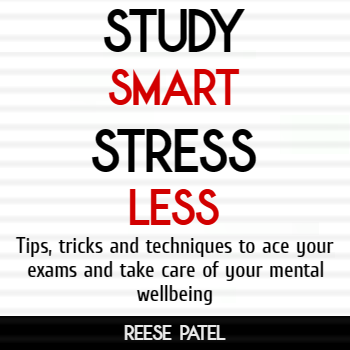Does success require suffering?
(≈10 min read)

Dr Victor Frankl, an Austrian Holocaust survivor and founder of logotherapy – a school of psychotherapy centred on living with meaning – wrote in his best-selling novel, Man’s search for meaning:
“Success, like happiness, cannot be pursued; it must ensue, and it only does so as the unintended side-effect of one’s personal dedication to a cause greater than oneself.”
Dr Frankl is a firm believer that for you to be truly successful at something, it’s essential that you’re doing something you love. He believes that only when you’re working on a project simply because you want to, rather than because it feels like work, will success occur.
It’s an interesting perspective for sure, but a perspective I still can’t help but view as slightly incomplete. Let me explain why.
The comfort zone
It’s universally acknowledged that the majority of successful athletes have goals, aspirations and targets and dedicate practically their entire lives to reaching these. While you’re bathing in the sun, gorging down that ice cream, they’re in the gym, doing squats until their legs feel like falling off. Now although it’s indisputable that they do truly love their profession, it’s inevitable that there’ll still be days when athletes wake up and think:
“You know what, today I just kinda want to lie in bed”
It’d be bold to assume that athletes actually look forward to the daily pain and suffering of training. Athletes train because they know what they want and they know suffering is required to get there. In this way, success does not simply ‘ensue’. Success requires suffering, it requires going through the pain of discipline to get where you need to be.
Muhammad Ali: “I hated every minute of training, but I said, ‘Don’t quit. Suffer now and live the rest of your life as a champion.’”
This unfortunate idea of prior pain being required in order to progress is something that I believe is transferrable to almost all aspects of life. By definition, to get out of your comfort zone, you are going to have to be uncomfortable (sorry to break it to you). That’s the only way to grow. Discomfort. And discomfort, in a lot of cases constitutes real pain and suffering. But it’s necessary suffering. It’s suffering for your future self. To quote from potentially the greatest film to ever exist – Master Shifu from Kung Fu Panda:
“If you only do what you can do, you’ll never be more than you are now.”
Look, I’m aware that this is quite a negative perspective – to suggest all good things demand a certain degree of prior pain is not exactly a pleasant thought. But it’s a thought that, in my opinion, couldn’t be truer. So with this thought in mind, how can we adapt our lifestyle in order to accommodate for pain?
Learn to love the journey
We, as humans, enjoy fantasising over the end result (the lean body, the athletic endurance, the flexibility) but hate the actual process required to get there. Sitting in your bed and thinking about what it’d feel like to be a healthy weight is a very different thing to when your muscles are burning and your forehead is dripping with sweat and your body feels like collapsing. Shockingly, we don’t want to feel that kind of pain. We want the end result yet are (usually) not willing to adhere to the process required to get there.
The way to bypass this is to stop fixating on the end goal and start focusing on the journey. Learn to love the journey. Learn to love that kind of pain that you know is growing you. Learn to love that feeling when you can run that extra mile, or lift a little more than you could yesterday. That needs to be your motivation. Not the end goal but the process.
Having said all this, I’m fully aware that telling yourself to love the journey is easy, but voluntarily enduring the pain along that journey is much harder. So here’s a quick little technique you can employ before you’re about to engage in a painful (yet necessary) activity or an activity where you know being present and engaged would be beneficial:
Every time you are about to engage in an activity, let’s say for example going to the gym, remind of yourself of two things:
1) That there will be a last time you ever do this activity
And:
2) That there is a possibility that this time, right now, is the last time you will ever do this activity
For all you know, tomorrow you might be involved in a terrible accident or be diagnosed with a certain kind of illness that strips your ability to move as you currently do. As depressing as it is to think about, this time in the gym may very well be your last. Now take a moment to think about how this consideration might change your workout?
If we were able to do things over and over forever, we would lose appreciation for them entirely. It’s the finitude of life; the fact that everything comes to end that motivates us to do painful things. The procrastination that would ensue if life was infinite would be immeasurable – we could always do that painful activity tomorrow.
Now obviously this thought that there’ll be a last time you ever go to the gym and that this could very well be that last time is not a thought any sane person wants to consider. Surprisingly, it’s not exactly pleasant to remind yourself of the fact that one day you’ll turn into a vegetable, and that you don’t know when that day will come.

But by actively reminding yourself of this possibility before engaging in that painful activity, you’ll be way more engaged in the activity and intrusive thoughts will be much less frequent. Imagine for example the difference between an average person eating a meal and a prisoner eating that same meal but knowing it is their last. How might the experience differ for each person? Who would appreciate the food more and be more present whilst eating? The idea is to transfer this idea of active engagement to painful activities too.
So in short, learn to enjoy the process of change. Try and derive your motivation not from the desired outcome but from that feeling of gradual improvement.
But suffer the right way…
It’s important here to make a distinction between unnecessary suffering and suffering with a long term goal in mind.
There are really two types of suffering. You have the kind of suffering that grows you (i.e. going to the gym) and you have unnecessary suffering (falling over and hurting your leg).
When I talk about suffering in this article, I’m obviously always referring to the first kind, the kind which demands a kind of sacrifice, the kind where you know subsequent growth will occur.
It’d be very easy, and many people do, to completely reverse, this ‘short term pain, long term gain’, mentality into living for temporary pleasure. Temporary pleasure provides a way of sustaining us through the hardship of life. It provides a way to make current you happy whilst simultaneously disregarding future you. But the issue with temporary pleasure is that it’s so easy to become reliant on and reliance can quickly escalate into full blown addiction.
To avoid this, it’s important to bear in mind why you are voluntarily going through this suffering – for your future self. Yes, smoking that cigarette might be the best decision for the you in the present. But that’s not the only you, you need to worry about. You also have the you tomorrow and the you in a month and the you in a year to look out for. Will smoking that cigarette be good for these you’s?
The fine balance between living for the now and living for the future
Life is a balance. Society is constructed such that to set up your future you need to suffer in the present. To do well in an exam you have to endure revision. To get stronger you have to put your muscles through pain. But then if you’re always aiming for the future, does that not mean that you’ll always be suffering in the present?
We need to be careful not to live our lives solely looking out for our future selves. There has to be a balance. There must be times when you allow yourself to think, “Ok, I’ve done enough. I’m content.”
If you spend too long contemplating the future, you’ll lose touch of the present. Life is unpredictable, volatile and could end at any moment. It’d therefore be pretty tragic if you spent your whole life setting up your future, only for that future to be taken away in some random accident. So enjoy the present as much as possible but bear in mind that you also have a responsibility to look out for your future self too and that looking out is likely to involve some kind of voluntary discomfort in the present.
Why we shouldn’t run away from pain
If happiness were just a matter of feeling good, drug users would be amongst the happiest people on earth. There is a huge difference between living a life predicated on meaning and purpose and a life where there is reliance on short term gratification to sustain us. Author of ‘The Happiness Trap’, Russ Harris says:
“So here is the happiness trap in a nutshell: to find happiness, we try to avoid or get rid of bad feelings, but the harder we try, the more bad feelings we create.”
A natural progression from ‘I need to feel good’ is ‘I must not feel bad’. This leads to something known as experiential avoidance which is essentially the mentality of ‘I must avoid all painful feelings’. This mind-set however is extremely damaging and strips you not just of pain but also of joy.
Often, things that you’re initially anxious about, you end up actually really enjoying and you never would have experienced that joy, if you’d have been completely discomfort avoidant. You can’t have love without fear of rejection (unless you’re some kinda supermodel). You can’t achieve great things without fear of failure.
Instead of living your life based on running away from anxiety and all these negative things that might arise, you should instead be looking to run towards the things you do want and learning to cope with those negative emotions along the way.
‘Success’, as long as we define it as meaning contentment, is going to require some degree of suffering and embracing that suffering as opposed to running away from it is, is imperative.
Osho – “To avoid pain, they avoid pleasure. To avoid death, they avoid life.”
Voluntary psychological discomfort
Discomfort is something people usually regard as being a purely physical phenomenon, but there’s something to be said about being willing to voluntarily endure forms of psychological discomfort too.
I’m not asking you to suffer psychologically just for fun. The point here is that small doses of voluntary suffering that are beneficial to your future self are like vaccinations that serve to strengthen your psychological immune system. The more vaccinations you give yourself, the more prepared you’ll be when life throws you that storm that might otherwise be overwhelming. If you’re accustomed to dealing and coping accordingly with stress on a small scale, it’ll be easier to deal with on a bigger scale.
The act of trying something, failing at it and learning from that failure for the next attempt is a key part of success. There’s a tendency however, and not surprisingly, for us to avoid doing things simply because there is a possibility of failure. Failure more often than not constitutes real pain and psychological suffering and so it’s something a lot of us actively try and avoid.
Arianna Huffington: “Failure is not the opposite of success; it’s part of success.”
But the only way to get better at something is to fail at it. Everything you do well today involved repeated failure. Without failure there is no growth. And that’s why giving yourself healthy doses of psychological suffering is so important – you’re training yourself to accept discomfort and not run away from it but embrace it. There’ll always be that voice in your head telling you to take the easy path out and run towards that temporary pleasure. But by engaging in voluntary discomfort you’re telling this voice that he/she is not in control. You’re in charge.
So what are some healthy ways to engage in psychological suffering?
Confronting your fears
Fear is sadly a universal human emotion and one which the majority of us are familiar with in one way or another. It’s also an emotion that can be incredibly powerful and lead, in some cases, to missed opportunities and regret.
A common psychological technique to counter phobias is known as systemic desensitisation, which in short involves gradually exposing the person with the phobia to the thing they are afraid of. I’m obviously majorly oversimplifying here and you should consult a professional if you have a phobia that is significantly affecting your wellbeing, but in the case where for example someone is afraid of lifts, each session the psychologist might encourage the subject to stand a little closer to the lift.

The first session might involve sifting through photos of lifts and subsequent sessions might involve entering a building with a lift or perhaps standing in a lift for a certain number of seconds. The idea is that repeated exposure to our fears, which is clearly an uncomfortable thing to do, can help in curbing them.
The same kind of logic can be applied in your life to practise psychological suffering. If you have a fear of failing, practise failing; a fear of public speaking, go on a public speaking course; a fear of rejection, practise being rejected; a fear of parties, start exposing yourself to smaller social situations. In general, if there is something you know you should be doing but are avoiding because you’re afraid, then you should probably do it.
I should stop at this point to emphasise that all this is much easier to say than do, but as long as you’re making a conscious and active effort to experience voluntary discomfort readily, you’re improving your psychological immune system and you’ll be better equipped for the storms life will throw at you in the future.
Negative visualisation
This might initially sound somewhat crazy but there can be great value in voluntarily considering negative thoughts. As much we as we, for example, would prefer not to think about death, deep consideration of its existence can shape the way you live your life. Death, unsurprisingly, is not the only thing that’s beneficial thing to consider. Here’s a technique you can try out than can help you bring about a state of contentment:
Think about the something in life you value incredibly highly. It could be your family, your favourite sport, your dog, your bed, your perfect face, anything really.
Now imagine if that thing were to disappear from your life tomorrow. Take a second to imagine how that disappearance might occur. Imagine for example that your family were involved in a fatal car accident or your sibling had a sudden heart attack or you were involved in an accident that meant you could never play that favourite sport again.
Now think about what consequences this disappearance would have on you and your wellbeing. How would you feel? How would you now view life? Close your eyes and really try and put yourself into the shoes of the ‘you’ who’s experienced this loss.
Now come back to the present moment.
Consider how if you were to lose that thing you value highly, how much you would be willing to give, to get back into the exact moment you find yourself in right now? You’d consider your prayers answered if you could simply return to this moment.
Surprisingly, I’m not asking you to think about these scenarios to compel you to unnecessarily suffer. The point is to help you to realise just how incredibly lucky you are to be in the position you are currently in.
There are so many bad things that could have happened to you today that haven’t. The person who you most love could have been stripped away from you today. You could have been diagnosed with terminal cancer today. You could have had a sudden heart attack today and been paralysed from chest down.
Whenever you’re in a bad situation, let’s say stuck in traffic, by considering these negative possibilities before bringing yourself back to the present moment, you can quickly instil a temporary sense of gratitude. You’re literally just stuck in traffic. Life could be much worse.
William Irvine: “the easiest way for us to gain happiness is to learn how to want the things we already have.”
By engaging in a kind of temporary psychological suffering through considering these somewhat distressing possibilities, you’re simultaneously acknowledging just how lucky you are to be where you are in this present moment. And it’s my opinion that being truly grateful for what we have is a key component of success, where success, in this case I define as overall contentment.
Voluntary physical discomfort
Just as with voluntarily enduring psychological discomfort, there is a case to be made that going out of your way to do things that are hard just because they are hard in the physical domain will also greatly improve the chances of success.
Whenever you do something that is hard just because it’s hard there is a risk of failure. And voluntarily confronting that risk and deciding to do that task anyway, even just on a micro-level is training your brain into considering the fear of failure as not a good reason to justify not doing something you might have found great value in.
When I talk about physical discomfort, as I mentioned earlier, I’m not referring to unnecessary physical discomfort. I’m referring to physical activities that might be painful in the moment but work out well for your future self. Activities such as: cold showers, hiking, running, going to the gym. You might set an ambitious and crazy goal to run a marathon for example. You know a running a marathon is hard (presumably) and you know that the training that’ll be required in order for you to get to this goal will entail a degree of voluntary suffering.
But you also know the purpose of this suffering. You are not running a marathon to impress others, but to strengthen your psychological immune system so you can better deal with life’s challenges in the future. Just like how when you repeatedly expose yourself to something you are afraid of in the psychological realm, you begin to slowly be less afraid of it, the same is applicable in the physical domain too.
If each and every morning you begin your day with a cold shower, any stressor that might spontaneously arise during the day will have far less impact on you than it would otherwise. Your body is already prepared and knows it has the capacity to deal with that stress. Each cold shower is like a small dose of a vaccination, so when the real illness comes, that super stressful event, your body is much better prepared than it would be if you hadn’t engaged in that voluntary discomfort at all.
But it’s hard to voluntarily suffer…
Having discussed the necessity of voluntary discomfort it’s important to end by saying that making yourself uncomfortable voluntarily is obviously extremely difficult. It’s all well and good saying that you’re going to take that bold step to expose yourself to uncomfortable situations but actually taking that step is a whole different story.
So don’t chastise yourself if you’re struggling. That’s totally fine and totally normal and doesn’t make you any worse of a person. You’re no different from me or any other person on this planet – we all struggle to do things we know we should. In fact, you’ll be shocked to learn that even as someone who’s written an entire article on why we should learn to suffer, I still find myself on numerous occasions avoiding things I know I should do. But that’s normal and totally fine. It’d be kinda weird if this wasn’t the case.
The fact you’re on this site trying to improve as a person says something about you. It’s actually a fairly noble and brave thing to do – not a lot of people are willing to undergo the hardship or suffering that’s a necessary component of positive change.
But as you are improving yourself always remember the things in your life that are truly important to you, always remember that you’re changing for you and nobody else and always remember that no amount of improvement is going to make you ‘feel good enough’. That’s a feeling that requires true self love and acceptance and a feeling that cannot be taught but which is entirely dependent on you.
I’ll reiterate this one more time. Failure to do something you know you should is totally normal and doesn’t make you any ‘worse’ a person. Who you are right now, in this moment…you’re enough. You’re enough just as you are.
That doesn’t mean that you shouldn’t try to improve yourself. Of course try. I’ll try too – that’s why I made this website. But at the end of the day, all that really matters is just that: that you’re trying.









